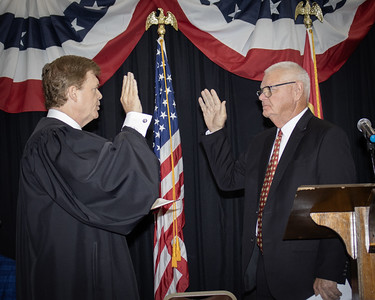Sid Salter Column
Published 12:00 am Friday, August 8, 2008
With governments at all levels facing rough seas caused by high fuel prices and the domino effect those price hikes have had on the nation’s economy, this may not be the best of economic times to point out one of Mississippi’s significant educational shortcomings.
Mississippi is the only state in the South without a state-funded early children education program. Only nine other states nationwide do not invest in some form of early childhood education and only 12 states don’t have a state-funded pre-kindergarten program.
But it is Mississippi’s lack of early childhood education competitiveness with our regional neighbors — the states that border Mississippi — that is most immediately disturbing.
How far behind are we? Take a look across our state’s borders:
• Alabama Republican Gov. Bob Riley is seeking to expand that state’s “First Class” pre-kindergarten program from an annual $10 million to $30 million — a $20 million increase.
• Arkansas’ pre-kindergarten program, the Arkansas Better Chance (ABC) program, will receive $111 million in 2008 from the state. The ABC program’s resources come from public school dollars, an excise tax on beer, and state child care funding.
• Louisiana has four state-funded pre-kindergarten programs. These state-funded pre-kindergarten programs receive a combined total of nearly $106 million in state funding.
• Tennessee’s Voluntary Pre-Kindergarten program, led by Democratic Gov. Phil Bredesen, has grown into one of the most successful in the country. Bredesen has proposed a $25 million increase that would raise Tennessee’s pre-k spending to an annual $105 million.
But in Mississippi, the best that lawmakers and Gov. Haley Barbour have been able to agree on is spending $3 million for a quality rating system and a child care resource and referral service.
That’s not to suggest that public education didn’t have a pretty good year in 2008 by Mississippi standards. House Bill 513, the education funding bill, didn’t give education advocates everything they sought this year. But in a tight budget year they got full funding for the Mississippi Adequate Education Program, an expansion of incremental pay to 35 years phased in over two years, $7 million for teacher supplies, funding for teacher mentors and for dyslexia screening and $3 million for early childhood education.
Barbour and the House leadership have battled over the early childhood education question. Barbour has said that the state can’t afford a mandatory state-funded pre-kindergarten program.
House Education Committee chairman Rep. Cecil Brown, D-Jackson, said Republicans killed a House effort to create a task force to make recommendations about whether a state-funded pre-K program is feasible.
But back in January, Barbour said it was Brown and his House Democratic colleagues that were the roadblocks.
“I proposed $5 million for a pilot program (in 2007) for early childhood education, but Rep. Cecil Brown killed it in the House,” said Barbour. “I proposed $2 million for dyslexia programs last year, but Mr. Brown killed that in conference committees as well. So, while we agree with most of the proposed education reforms, there may be some disagreement over the funding levels because the costs have to be reasonable.”
Partisan politics aside, the biggest obstacle to state-funded pre-kindergarten in Mississippi is fiscal, not philosophical. The state has struggled to provide bare bones funding to the state’s existing K-12 public education system, higher education and the state’s community colleges for years.
But with economic development and an educated workforce now intertwined, how much longer can Mississippi afford not to bring a state-funded pre-kindergarten program forward?
(Contact Perspective Editor Sid Salter at (601) 961-7084 or e-mail ssalter@clarionledger.com. Visit his blog at http://www.clarionledger.com.)





